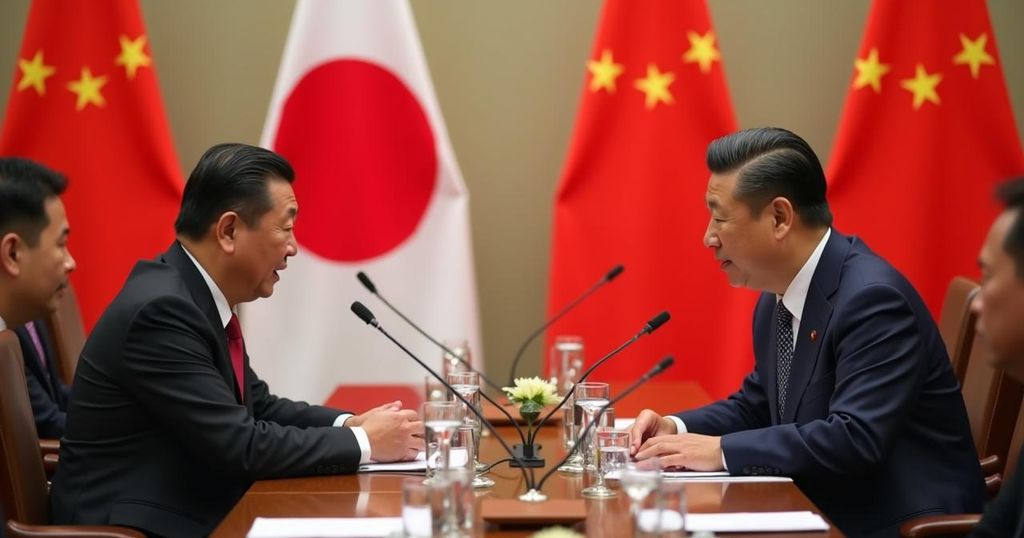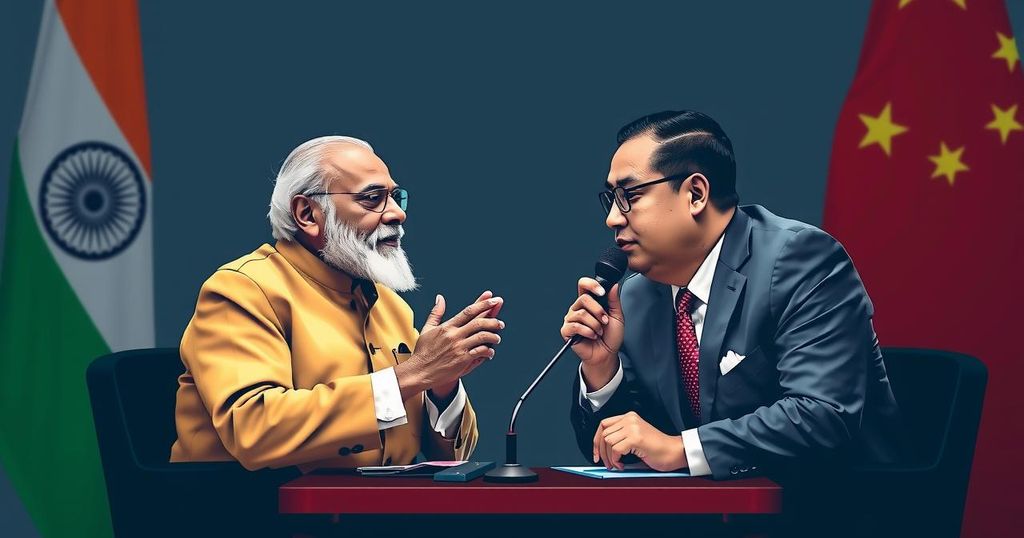Japan and China Seek Stabilization of Relations During ASEAN Meetings
Japanese Prime Minister Shigeru Ishiba met with Chinese Premier Li Qiang in Laos to address tensions and seek improvements in bilateral relations. The leaders agreed to build on previous commitments to foster a mutually beneficial relationship. Despite ongoing disputes over territorial issues and recent concerns about a tragic incident involving a Japanese citizen, both nations also discussed steps to normalize trade, particularly in seafood imports.
On Thursday, Japanese Prime Minister Shigeru Ishiba and Chinese Premier Li Qiang convened for their inaugural meeting in Vientiane, Laos, as reported by the Japanese Foreign Ministry. This meeting took place amidst a series of leaders’ gatherings associated with the Association of Southeast Asian Nations (ASEAN), with a focus on improving the strained ties between Japan and China. Since taking office on October 1, Prime Minister Ishiba has expressed his commitment to establishing “constructive and stable” relations with China, underscoring the need for mutual accountability. The two leaders’ discussions followed a precedent set by Ishiba’s predecessor, Fumio Kishida, who in November of the previous year had agreed with Chinese President Xi Jinping on fostering a “mutually beneficial relationship based on common strategic interests.” Despite the diplomatic overtures, Japan and China continue to grapple with several contentious issues, particularly concerning Chinese incursions into waters surrounding the disputed Senkaku Islands, which are claimed by both nations. Additionally, there are rising concerns in Japan following the tragic incident involving the death of a Japanese schoolboy in Shenzhen, which has prompted Tokyo to seek clarification from Beijing. On a note of recent developments, China has also agreed to ease restrictions on Japanese seafood imports, a ban that was enforced after the release of treated radioactive water from the Fukushima nuclear plant began in August of the previous year. This step is seen as a move towards normalizing trade relations between the two nations.
Japan and China share a complex history characterized by both cooperation and conflict. Tensions have escalated in recent years due to territorial disputes, particularly regarding the Senkaku Islands in the East China Sea. The relationship has also been strained by incidents involving Japanese citizens in China and issues concerning trade and food safety, particularly in the aftermath of the Fukushima disaster. Prime Minister Ishiba’s administration represents an opportunity for renewed dialogue and potential stabilization of relations, building upon previous agreements aimed at enhancing bilateral cooperation.
The meeting between Prime Minister Ishiba and Premier Li signifies a critical step towards addressing ongoing tensions between Japan and China. By expressing a desire for constructive dialogue and acknowledging the complexities of their relationship, both leaders appear committed to fostering a cooperative atmosphere. However, the success of these efforts will depend on their ability to navigate the longstanding disputes and enhance trust between their nations.
Original Source: english.kyodonews.net








Post Comment